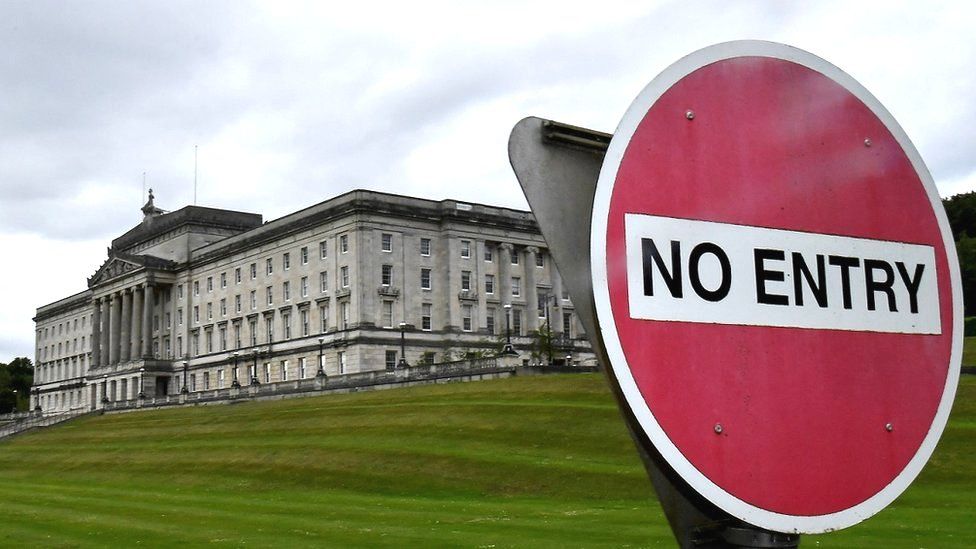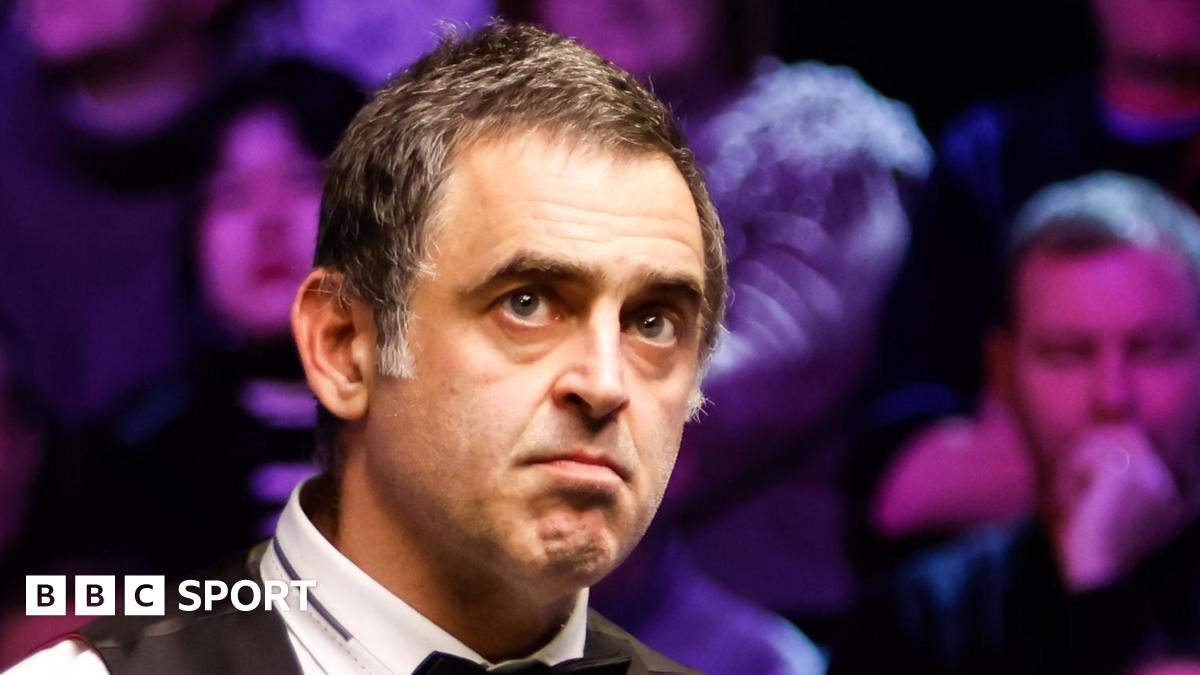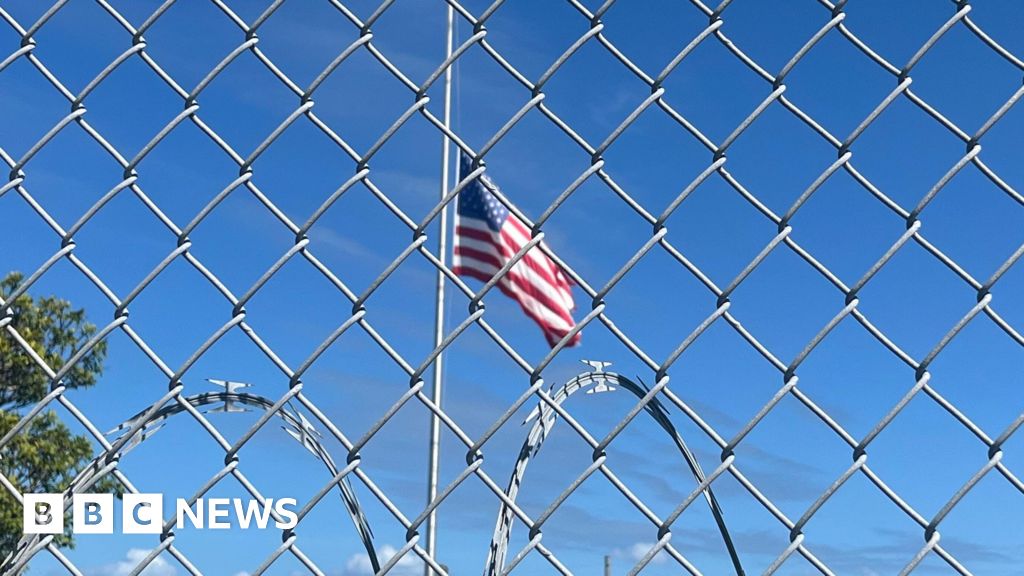 Image source, Reuters
Image source, Reuters
Northern Ireland has been without a devolved government at Parliament Buildings in Stormont for almost two years
By Jayne McCormack
BBC News NI political correspondent
The Northern Ireland Assembly is to be recalled later in another bid to elect a new Speaker before the deadline to restore devolved government expires.
The assembly collapsed in early 2022 due to the Democratic Unionist Party's (DUP) protest over post-Brexit trade rules for Northern Ireland.
It has not been able to sit since as the DUP has refused to vote for a Speaker.
The recall comes ahead of Thursday's legal deadline to restore devolution.
If it does not return, then fresh elections are required.
However, political parties in Northern Ireland say Northern Ireland Secretary Chris Heaton-Harris has already indicated he will pass new legislation to extend that requirement.
The government has already done this on several occasions since devolution collapsed in February 2022.
Sinn Féin had proposed Wednesday's recall of the assembly, with backing from the Social Democratic and Labour Party (SDLP) and Alliance.
Image source, Reuters/CLODAGH KILCOYNE
Image caption,Sinn Féin Vice-President Michelle O'Neill said her party's motion for a recall was supported by the SDLP and Alliance Party
Without a new Speaker, the assembly cannot function.
However, a Speaker can only be elected with support from a majority of unionist and nationalist members and this is not possible without the DUP.
There have been six recalls of the assembly since May 2022. Every time there has been a vote to elect a speaker, the DUP has blocked the move.
The party's veto, which is unlikely to change later, means no other assembly business can take place.
Analysis: NI's politics to stay in the deep freeze
If at first you don't succeed, try and try again.
The problem is that saying hasn't quite worked out so far for those politicians hoping to be back on Stormont's blue benches by now.
Today's events are already expected to return the same outcome as the past six recalls, with our politics remaining as frozen as the winter weather this week.
As assembly members prepare nevertheless for the recall, which will last little more than an hour from midday, the secretary of state will be on his feet in the Commons fielding questions from MPs about his next move.
We already know he's refused to release the cash for public sector workers in time to avoid Thursday's mass strikes.
But with the government's repeated failed attempts to make Plan A successful, the focus is switching to its Plan B - whatever that looks like.
Sinn Féin's motion endorses the "demand for fair pay settlements for public sector workers" and "emphasises the pressing need to urgently reinstate the executive to tackle the unprecedented challenges confronting citizens and public services".
The DUP has said the recall will "achieve nothing" because the party's conditions for returning to power sharing "have not been secured".
The party's finance spokesman Gordon Lyons said the parties supporting the recall had "chosen grandstanding and stunts rather than serious effort to secure that sort of progress".
Why did devolved government in Northern Ireland stall?
The DUP has been blocking the restoration of Stormont's power-sharing institutions since 2022 in protest against post-Brexit trade checks between Northern Ireland and Great Britain.
It believes the arrangements under the Northern Ireland Protocol diminish the region's place within the UK internal market.
A new deal, called the Windsor Framework, aimed at addressing those concerns was agreed in February 2023 between the government and European Union.
But the DUP said this did not go far enough, and for months the party has been in talks with the government seeking further changes.
In December, Chris Heaton-Harris said those talks had "effectively concluded" and offered a £3.3bn financial package for Northern Ireland if the Stormont institutions were restored.
That financial package includes almost £600m to solve the pay disputes at the heart of the public sector strikes.
The government has refused to release the cash in time to avert the strikes, insisting it is tied to the restoration of the executive.
Mr Lyons, of the DUP, said that the power, however, is in the government's hands, adding that "the failure to implement that pay award is down to a lack of will on behalf of the government, not a lack of an executive".
He added that the power to deliver a pay settlement for public sector workers "is in the government's hands".
 (1).png)
 11 months ago
18
11 months ago
18


















